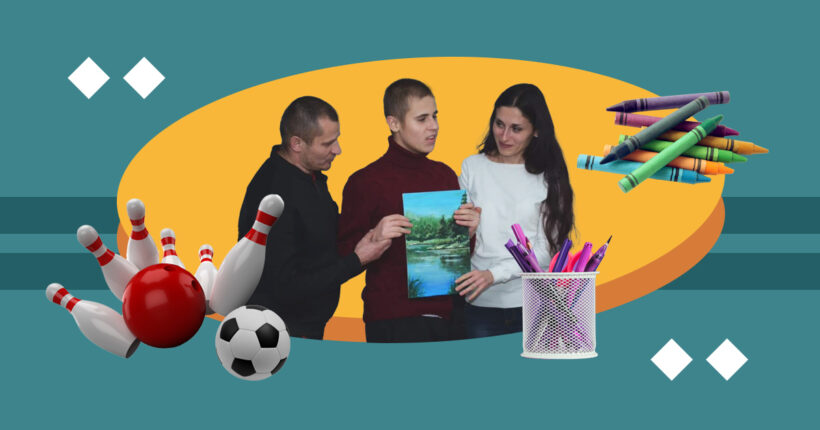
What is the problem?
According to the World Health Organization report, 1 in 160 children has an autism spectrum disorder, and they are more commonly diagnosed in boys than girls.
An analysis recently published by the CDC (US Center for Disease Control and Prevention), autism is now diagnosed in 1 in 36 children.
Olesia Samoilenko has a 19-year-old son, Ihor, who has also been diagnosed with ASD.
"We have come a long way to accept the diagnosis. The biggest crime was hearing doctors say that "your child has no developmental disabilities". Our biggest mistake was seeking a magic pill. We know now that there is no cure for autism, but back then we spent almost everything we had trying to find one, using special diets, a whole protocol for taking supplements, acupuncture, and much more. But in fact, the most important thing to help was mastering the method of corrective work. Now, Ihor and other children with ASD will have a chance to become truly independent."
What is the solution?
The violated right to education pushed for the creation of an enthusiastic parent group with autistic children. The plan to ensure a decent future unrelated to boarding schools inspired the creation of a public community. Olesia Samoilenko united people who understood the necessity to provide high-quality ongoing education for their children and themselves. To fix the situation, they had to learn a lot and convey the need for societal changes.
How does it work?
"Every challenge has its solution"
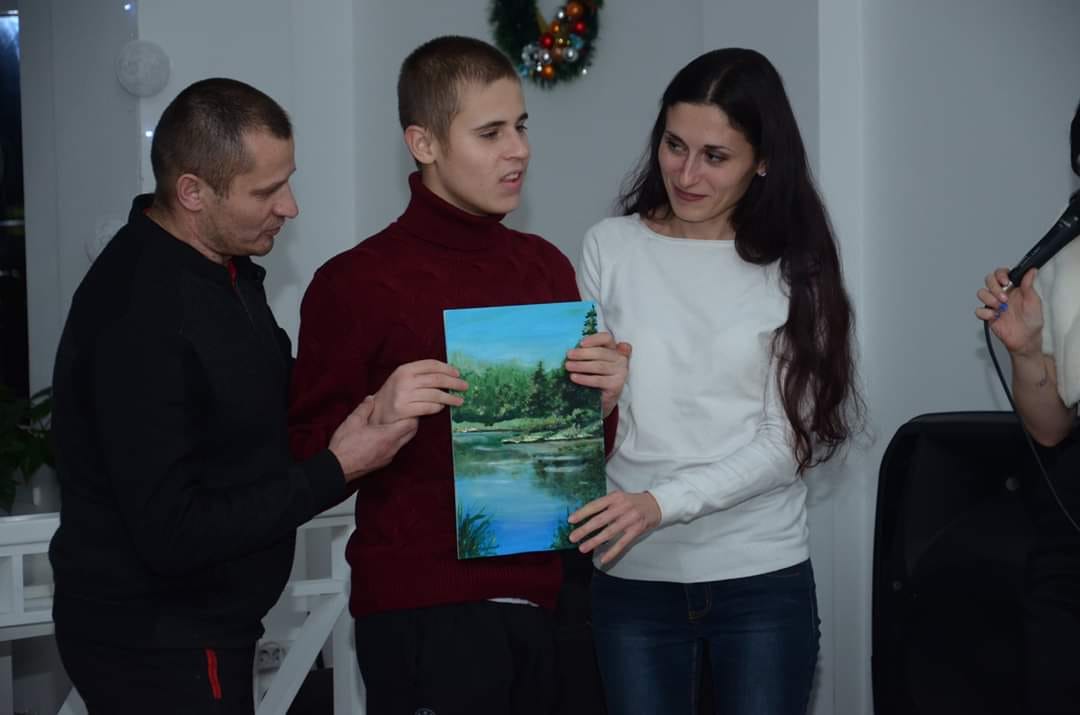
Olesia Samoilenko with her son Ihor and husband
The first step on this path was approaching the education department of Vinnytsia City Council. Studying the experience of neighboring countries, the parents urged to create conditions for children with autism to have the right to study along with everyone else.
"When I appealed to the department in 2013, I was prepared for a struggle, perhaps even a court case. But to my surprise, after reading my letter with the proposed algorithm to provide a resource room for autistic children, just as for kids with musculoskeletal disorders, they said: let's do it! On September 1, 2014, the schools opened for children with severe autism. It was the first case of inclusive education, but it was the beginning of great changes," said Olesia.
Olesia and her husband have a relevant education in working with autistic children. She received a second degree in speech therapy, and her husband studied psychology and graduated as a teacher's assistant in remedial education. They conducted training for the school staff, where their son Ihor and three other children with ASD studied. Together with like-minded people, the parents started hosting educational campaigns about autism, held exhibitions of creative works, and filmed social videos about inclusive education.
"I have a motto: "Dream and do it!" I realized that there was a solution to any barrier or challenge. The next step after opening a resource room and inclusive classes for children with autism at school was to start developmental camps, because Ihor and children like him weren't approved to participate in summer camps. And again, this injustice was the push for the launch of alternative inclusive development camps for such children," Olesia said.
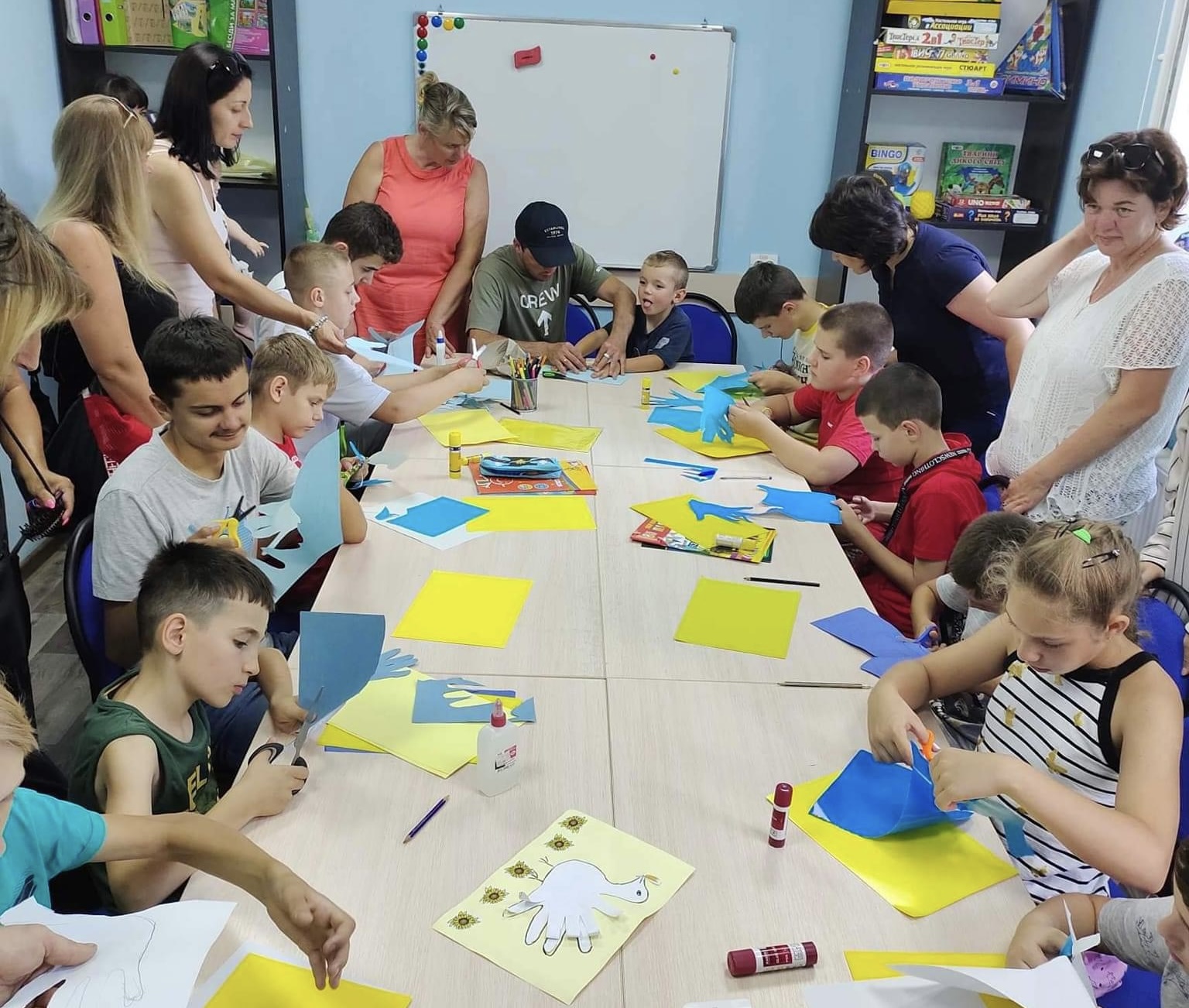
Classes for children with mental disorders
After active cooperation with the authorities and local communities, Olesia was invited to work with the team of Raisa Panasiuk, the Government Commissioner for the Rights of Persons with Disabilities, three years later. At that time, the parents' community had a significant positive experience in launching a support system for children with autism and intellectual disabilities. Olesia said it was the most favorable time to put these changes in the legal framework and legislation so that what parents fought for would be a duty for officials.
And so it happened. Supported by Ukrainian ministries and the First Lady's office, they made another big step towards significant changes. Parents can now choose the education form for their child, whether it is inclusive education or a special school. The resource room, as a necessary element of accessibility for children with autism, was introduced into the Law on Education. Ukrane allocates a state subvention for inclusive education.
With her experience at the Government Agent's Office, Olesia started developing a tutoring institution, such as a personal student assistant. Previously, parents performed these duties on a voluntary basis, but in 2020, it became a paid service. She worked on accessibility in various fields, including sports, developed the Special Olympics of Ukraine, and let children with even the most severe developmental disabilities to participate in training and competitions.
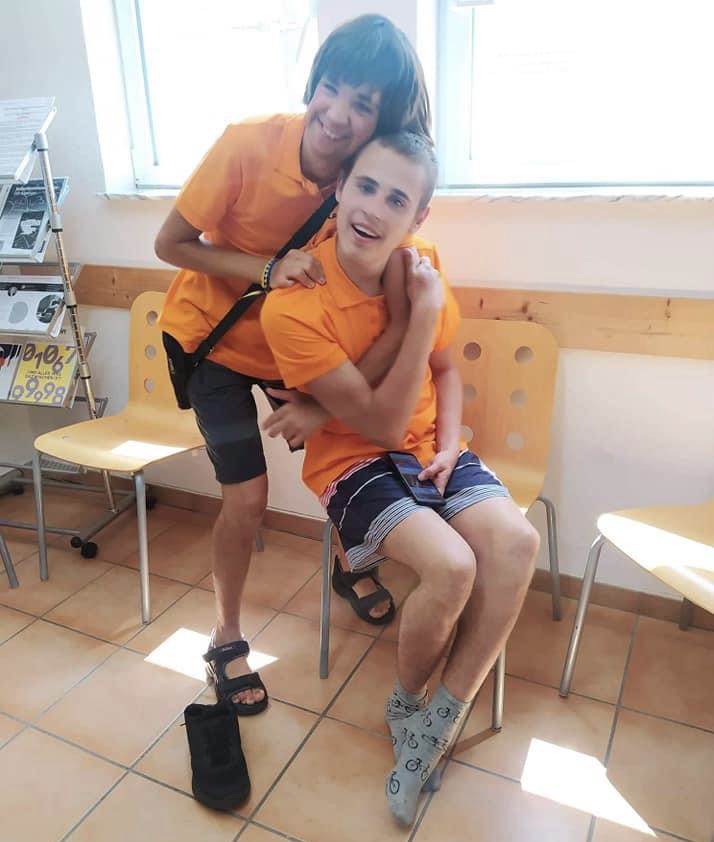
The best reward for parents is their children's happy smiles
"Throughout our work, we have felt the need to make changes," Olesia said.
"In 2019, we joined the international mission Kolping's Case in Ukraine. Our team has those who are most motivated to make changes, like parents of children with disabilities. Some highly qualified specialists help their children, and others who need quality assistance. Our team has those who have caring hearts and a sincere desire to give light to the people around them. The most important part of the team is people with mental disabilities, adults and youngsters."
What to do next?
Olesia says that although parents of children with special needs are the main push for changes, it is still not enough. Ukraine should directly cooperate with organizations that provide services and know about the problems from practical experience.
The first solution that needs to be presented is the principle "Money follows the person." All social services should be provided according to personal choice, but not public opinion. If this principle works, the quality of services will improve, as the organizations that provide services will be interested in being chosen.
Parents have to keep working, seek support, and create projects that can assure some income and be self-sustaining. They must finally make changes and understand that time waste is their greatest enemy.
"We have to be active, to do everything we can to give every child a chance for the future," she said.
This is possible, Olesia says, citing her son's experience.
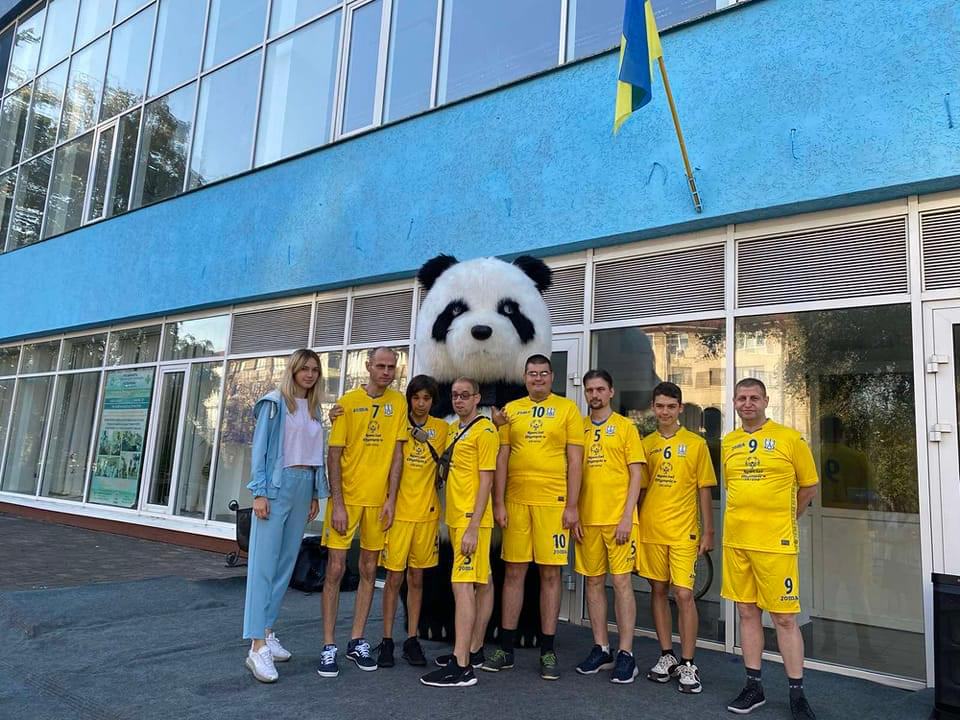
Boys from the Assisted Living Facility represent Vinnytsia region at the All-Ukrainian Futsal Competition of Special Olympics Ukraine
"We could only dream of a child's personal assistant, inclusive education for children with severe disabilities, resource rooms, and a supported living facility. But now, with Vinnytsia City Council's support, 41 children with special needs receive support for inclusive education in Vinnytsia schools alone."
By developing the Special Olympics, the organization hosts training sessions and tournaments in football, athletics, bowling, and volleyball, thus overcoming stereotypes and barriers to the opportunities of people with intellectual disabilities. Despite the war, Olesia resumed the work of her development center for children with autism.
"We train assistants, teachers, and other professionals working with children with developmental disabilities. Our organization provides services to more than 80 underage children and 11 young people over 18. We have no right to stop despite any challenges that life gives us because the quality of life of our children depends on it," Olesia said.
Olesia Samoilenko reminds to support the community whenever possible. You can do it in different ways, like saying a kind word, making a charitable contribution, volunteering, spreading information, and asking about the needs of those who work with people with disabilities because they are always there.
Soon, Rubryka will report about support for adults with ASD and how a Supported Living Home was created in Vinnytsia to help young people adapt to adulthood.





